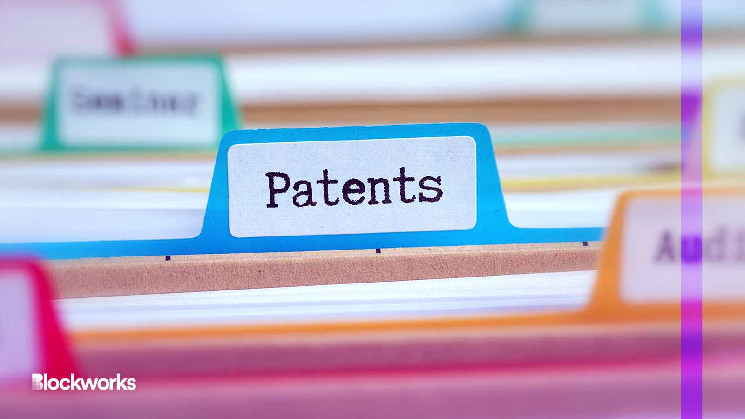NFT
With digital assets on the rise again, companies across the board have once again blocked blockchain-related patents.
U.S. and international patent or trademark filings related to cryptocurrency industries, including blockchain initiatives and NFT ventures, are an important means for businesses to secure related intellectual property. And in the meantime potentially gain a competitive advantage.
As mainstream tech giants, including Amazon, jump on the NFT bandwagon, the industry has dissected the possibility of a spring-to-summer surge in exclusive access to events and collections.
That could turn passive customers into active players, according to Gökçe Güven, CEO of Web3 tooling platform Kalder. The goal of increasing engagement and brand loyalty can apply to individual NFT makers as well as major brands.
“Blockchains and blockchain-based systems are poised to unlock a wide variety of use cases that we probably haven’t even considered,” Güven told Blockworks. “But those use cases need to be structured in a way that incentivizes the individual creator to participate, and this includes legal and regulatory systems.”
As crypto initiatives broadly continue to evolve, patents and transactions are on the rise in terms of enforcing the authentication NFTs inherently provide on the blockchains they are based on, according to Nihar Neelakanti, the CEO of carbon-backed NFT maker Ecosapiens .
“Trademarks and NFTs are like Cinderella and the magic slipper — a natural fit,” Neelakanti said.
Added Neelakanti, “NFTs and other digital assets are the best technology to verify identity anywhere on the internet and through every transaction, and in this sense, a trademark enhances and enforces the technical protection that an NFT can provide through a legal framework.”
Here’s a snapshot of five brand-recognition companies that recently filed patents for Web3 offerings. Companies often apply for patents with no expectation of using a product in the foreseeable future.
Haribo
German candy maker Haribo has made a leap into the world of NFTs.
The creator of the gummy bear filed an NFT-related trademark application with the U.S. Patent and Trademark Office on April 25. The company filed a number of applications related to “digital collectibles in the form of downloadable multimedia files”.
Those sectors, according to the application, include “downloadable audio and video recordings, digital avatars and cartoons related to confectionery”.
FICO
Global analytics software company FICO recently hit a patent jackpot. Not only did it get 12 patents, but also the use of blockchain for data and model management.
FICO, the company behind the popular FICO Credit Score product, has long been a tool that lenders use to assess people’s creditworthiness and decide whether they are suitable for loans or credit cards.
Scott Zelda, the company’s chief analytics officer, has said blockchain technology has practical value in terms of AI, analytic governance and auditing.
FICO’s new patent is all about tracking how machine learning models are created, used and monitored. It uses a ‘shared ledger’.
Fujitsu
In March, Japanese electronic giant Fujitsu filed a trademark application for numerous services, including crypto trading.
The application for Fujitsu enabled the company’s ambitions to dive into everything from currency exchange to digital asset management – on top of crypto brokerage services.
Trustworthy investments
Boston-based investment management firm Fidelity Investments broke new ground by filing trademark filings in December that indicated plans to serve clients in a virtual world powered by digital currencies.
Three patent applications showed Fidelity’s plans to explore marketing, placements, recruiting and referral services for investment and financial planning in the metaverse. It was also setting up an NFT marketplace where one can buy, sell and trade digital goodies.
Read more: Fidelity doubles down on Metaverse with financial literacy experience
Formula one
In the fourth quarter of 2022, the Formula 1 motor racing league filed a number of crypto-related trademarks for the abbreviation “F1”, which changed from NFTs to virtual goods stores.

